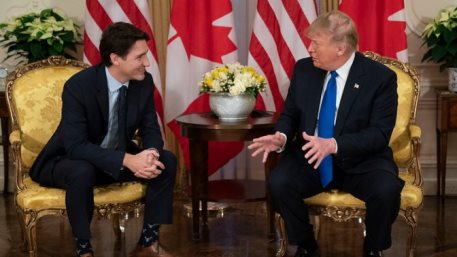
Your summer holidays are now over. The days of leisurely watching the waves splash on the shore while drinking your ice-cold Mojito on the beach are now over. It is time to return to the market and get back into the right mentality.
But the transition from a relaxed state of mind to the laser-focused attention to small details demanded by your trading strategy can be daunting. That is why we share our top three picks of things you can do right now to get into the right state of mind and have the smoothest possible return to the world of trading.
You are not in Ibiza anymore, Dorothy! Don't expect everything to be peachy
After their summer holidays, a common mistake traders make is to return to the market in an overly optimistic state of mind. We are not trying to say that you should be gloomy and depressed in order to succeed, quite the contrary actually. However, too much excitement can cloud your judgement and perceptions.
Emotional decision-making leads to rash and spontaneous trades, which you wouldn't otherwise make. In most cases, traders set unrealistic expectations for what their post-holidays performance could be. The inevitable subsequent disappointment could then blast them into the opposite sentimental extreme of doom and gloom.
In order to "acclimatise" to the market in your first few days back, it would be a good idea to refrain from placing any positions. Even if you spot an opportunity, you wouldn't be certain if your judgement isn't askew. You can write down the hypothetical entry and exit levels of such an imagined trade in your trading journal, and then monitor the further behaviour of the market.
If the market does go on to behave as initially expected, that would mean that your perceptions are not jeopardised by your emotions.
Don't wait for the 1st of January to start going to the gym
The effect of market seasonality is especially pronounced in the months of July and August. As the overall trading volume increases parallel to many small retail traders' return, the levels of adverse volatility rise markedly. That is owing to all of the extra noise that is prompted by this heightened market activity.
The general enthusiasm of traders returning from their summer holidays can be compared to what happens during each new year's first few working days. This is referred to as the "New Year resolution" effect.
How many people do you know who decide to change their lifestyles for the better at the beginning of each new year? One of the most common resolutions inevitably includes the decision to start going to the gym. What happens, in reality, is that gyms stay packed for the first couple of weeks of January before the enthusiasm starts to subside.
Avoid being "that guy" on the market. Remember that trading is more of a marathon rather than a sprint, so you do not have to become a millionaire on your first week back. Remember that on the market, patience is a virtue. That is why you have to maintain your composure and avoid trading on the frenzy prompted by mass-market psychology.
Don't join the herd, be a critical thinker
As mentioned above, with the return of all of the small retail traders, the so-called herd mentality becomes the norm. This is what John M. Keynes referred to as "animal spirits". Typically, higher-risk assets become more volatile as enthusiasm-driven demand for them surges.
Think about Bitcoin, which is currently undergoing through a difficult patch. Excited beach enthusiasts are now likely to drive the demand for the cryptocurrency up, as they already plan for their next year's summer holidays. As soon as the underlying price starts to appreciate, more and more traders would likely rush to join the hype train.
The impact of such mass-market psychology epitomises the fear of missing out (FOMO), which is not a good enough of a reason to sustain a prolonged uptrend. And market wales recognise that. Seasoned traders know that excited retail traders waiting for the next big move are likely to place very narrow stop-losses below their entries.
All of this creates the ingredients for a perfect market storm - a bull trap. Market wales love to prey on small retail traders by placing opposite orders. The idea is to drive the price action towards the majority of stop-losses in order to create temporary discrepancies in the underlying supply and demand equilibrium.
The big outtake here is not to rush to join "the next big movement" on the first early indication that you spot. Your summer holidays may be over, but your trading carrier doesn't have to follow suit. Be smart, be patient, be safe.




















